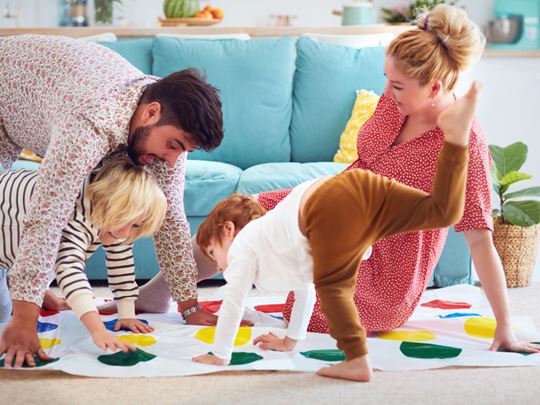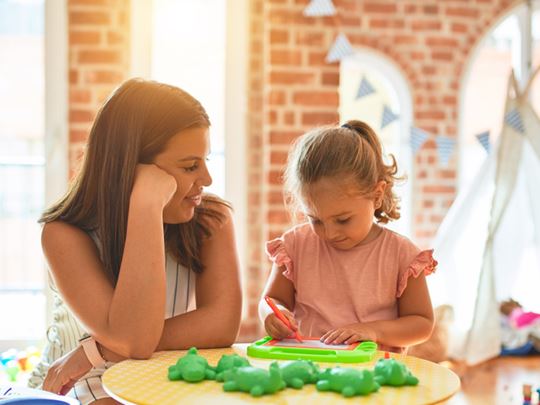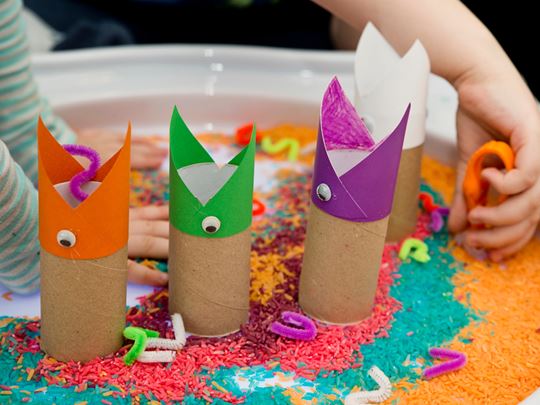When we think of children playing, we often think of independent play where the children play by themselves, happily allowing us to get on with whatever chores we had planned for the day.
The reality is this is often not the case, from arguments between siblings to expressions of anger due to not being able to play with what they wish to play with, children can often find playtime taxing.
When it comes to children in care there is an added complication. Quite often foster children from no fault of their own don’t understand the concept of playing and find unstructured playtime extremely stressful.
The importance of play to children
Children learn through play, play can help improve physical, social, and emotional well-being. The benefits of play for children are to help them learn about the world and themselves. These skills are then used later on in life such as sharing, physical fitness, problem-solving, and building relationships

7 top tips to encourage play
Whether you’re a birth parent, grandparent, foster parent or carer, teaching your child or children to play is an important aspect to looking after a child. Here are some great tips to help encourage play.
Lead by example!
First and most importantly you need to lead by example and learn to play again. Teaching your child to play by demonstration is one of the best ways to not only encourage independent play but also to interact socially with your child.
Be realistic about concentration spans
Playing for hours may seem like something you did as a child however I’m sure your parents would have something else to say on the matter. be realistic about the time expectations given for a period of play. Play should be for short periods of time, to begin with, build up as the child takes over and starts to enjoy playing.

Repetition and scripting
Play doesn’t always have to be made up and we don’t have to think about new exciting ways to demonstrate play. and then on your child’s age repetition and scripting can be a great way to connect with your child in something they enjoy for example a TV show and relate it back to the toys that they have.
Use their favourite TV programme that your child watches continuously use this as the basis of your play take bits of the script so that the child understands that you’re acting out a scene and therefore can join in. Scripting and repetition it’s great as well for children who have more complex needs such as children with autism.
Less can sometimes be more
We’ve all done it, pointed at one of the many boxes of toys lying around the living room and told our child to just pick something to play with.
This can be overloading for many children and can cause an unstructured situation by the child can’t make a decision. Instead, try selecting toys or reducing the amount of choice. this allows the child to understand that you are helping them make a decision, this therapeutic approach allows the child to feel connected and playtime can be more enjoyable.

Sensory play
Sensory play is a great way to express emotions, and feelings whilst gaining sensory feedback from playtime. Often used by therapists this type of play or activity works by stimulating the 5 senses: sound, sight, smell, taste and touch. For more examples of sensory play, activities head over to our blog here.
Reduce screen time
Setting limits on technology is a great way of reducing screen time and encourage not to rely on technology to curve boredom. Try and keep certain times or areas technology-free zones such as meal times, before bedtime routines or in bedrooms.
Praise
Never underestimate the power of words, praising children for playing even for the shortest periods of time is uplifting and encouraging. Praise your children for playing as although it seems like such a simple thing it took a lot of effort and imagination.
Think about your positive language and ensure you use this during and after the play to share appreciation and understanding of the effort that they made and knowledge of their achievement and success.

If you are fostering a child, remember they may not have had the opportunities to learn to play or you may need to gain their trust in order to be able to interact in play.
For those children, who have experienced childhood trauma play can be a great way of expressing emotions, allowing your child to open up in a comfortable and safe environment. Play therapy is a great way to help children who have been through early childhood trauma and you can read more about this here.
Not sure if you meet all the requirements? Give us a call on 0800 023 4561 and we can answer any questions you have.
Foster Care Requirements
- Be over 21 years old (there’s no upper age limit)
- Have a spare bedroom but you don’t need to own your own house
- Be a British Citizen or have indefinite leave to remain
- Generally, you’ll need to be able to foster full-time, but there are a few exceptions
- Plenty of patience, energy, resilience and commitment
More blogs…
By Phone
Call a member of our friendly fostering team and they’ll be able to answer all your questions
By Email
Email our team by completing our online enquiry form
Visit an office
We are always happy for you to pop in for a chat




